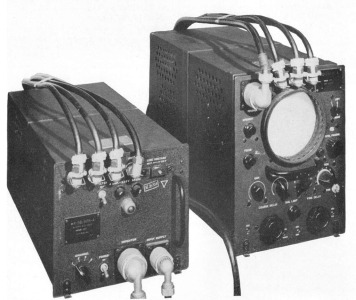
WWII Loran recievers like this one used the Loran system, which recently got an upgrade and revamp to be used as a backup for GPS.
GPS is a wonderful tool, but as it becomes more and more prevalent in technology, it becomes harder and harder to navigate without it. The BBC reported last week that the General Lighthouse Authorities have installed a system called eLoran in seven ports across Britain to use as a backup in case of a GPS outage.
The eLoran system is a resurrected and revamped version of the Long Range Navigation system (Loran) used in WWII by the US Navy to guide warships. The eLoran system has, of course, been upgraded to make it more accurate and renamed and rebranded. Unlike GPS, the eLoran system is ground based and uses completely different kinds of signals to GPS, meaning that a blackout of both systems is highly unlikely.
Of course, the chances of such a backup system being deployed worldwide are pretty slim, as the US Coast Guard has been decommissioning the existing infrastructure for eLoran, and Norway and France have stated they intend to cease operations sometime in 2015.
I don’t personally have any experience with the eLoran system to attest to its accuracy, but with the potential of GPS spoofing and jamming or GPS blackouts from solar flares and the like, it seems like a good idea to have a backup. What do you think? Is eLoran an outdated pointless precaution or something that we should probably look into? Let me know in the comments!

LORAN is a phenomenal system and one that troubles me to see nations disposing of its valuable use. I’ve been in the Navy for 8 years and have had the chance to navigate by LORAN and while it is quite different from GPS the principal is the same with the exception of it being ground based. LORAN works by triangulation much the same way GPS does but with its land-based platform the accuracy tends to be much better than GPS since most stations are based not too far from waterways. The only downfall is that getting away from the coast means no LORAN which does limit its effective use but in this day and age the US Navy still teaches ancient methods of navigation in case of a GPS outage.
Ever tried navigating by the stars? I believe the US should follow in the foot steps of Great Britain and retain eLORAN if not for the safe navigation of ships back into port than anything else.